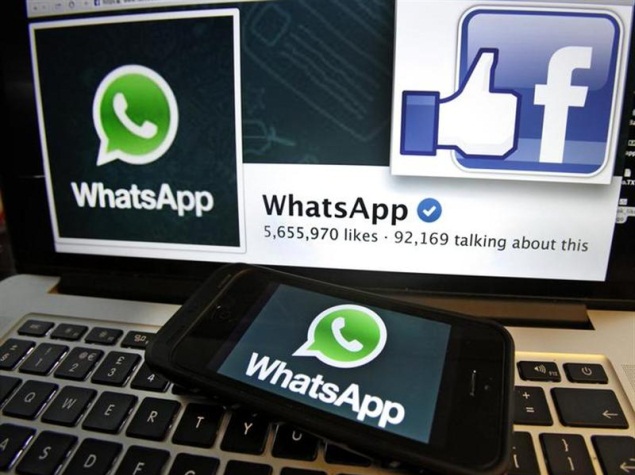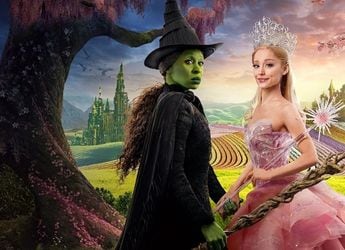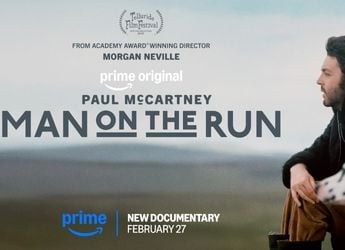WhatsApp helps Sequoia Capital settle an old score with Mark Zuckerberg

Valentine's Sequoia Capital is in line for a dizzying return from the purchase of startup WhatsApp by Facebook, whose famous founder snubbed his venture firm a decade ago.
Sequoia's unprecedented string of money-making moves includes being an early backer of Apple, Google, Yahoo, YouTube, Oracle, PayPal, Electronic Arts, Zappos, and Cisco Systems.
Facebook was one that got away.
That was, until this week when the social network founder who once made sport of Sequoia with a prank that became the stuff of Internet industry legend inked a deal valued at up to $19 billion to buy Sequoia-backed WhatsApp.
Sequoia's return on its roughly $60 million investment in WhatsApp has been estimated to be anywhere from $3 billion to nearly $7 billion depending on how big a piece of the startup it owns.
The windfall also made a idol of Sequoia partner Jim Goetz, who orchestrated the bet on the startup out to supplant traditional smartphone text messages with a virtually free Internet-based alternative.
The investment firm, based not far from Facebook's headquarters in the California city of Menlo Park, was also a backer of smartphone photo sharing service Instagram.
Facebook founder Mark Zuckerberg snapped up Instagram in 2012 for a billion dollars.
The WhatsApp deal was seen by some as payback for a trick Zuckerberg played on Sequoia shortly after coming to California in 2004 to infuse his Facebook vision with Silicon Valley energy.
In a stunt made famous in a book and a film spun from the social network's creation story, Zuckerberg showed up late in his pajamas to an appointment at Sequoia and made a pitch that was more taunting than tempting.
Zuckerberg had become an ally of Napster co-founder Sean Parker, who had a grudge against Sequoia and was out for a bit of vengeance.
Older, wiser and now the boss of publicly traded Facebook, Zuckerberg has gone on record saying he feels "really bad" about being rude to Sequoia.
Kicking a few billion dollars to Sequoia and bolstering its reputation as a powerhouse Silicon Valley investment firm provides ample balm for soothing hurt feelings.
Don Valentine studied business administration in college and went on to work at Fairchild Semiconductor and become a founder of a founder of National Semiconductor in Silicon Valley in 1959.
Since Valentine established Sequoia in 1972 it has become a Silicon Valley powerhouse with offices in China, India, Israel and the US.
In a YouTube video of a talk given by Valentine at Stanford University school of business about four years ago, he said Sequoia is more focused on the size of the market a startup is attacking than on whether it has the best and brightest minds.
Sequoia's goal is to build big companies, and that is more likely to happen if a startup being funded is taking aim at a huge market, according to Valentine.
"We don't spend a lot of time wondering about where people went to school, how smart they are and all the rest of that," Valentine said in the video.
"We're interested in their idea about the market they're after, the magnitude of the problem they're solving, and what can happen if in fact the combination of Sequoia and the individuals are correct."
The tactic paid off with WhatsApp. Zuckerberg justified the stunning purchase price on the grounds that the service is blazing its way to a billion users and beyond, and networks of that size are valuable.
In just five years, WhatsApp has attracted more than 450 million monthly users around the world and a million more sign up daily, according to the startup.
Valentine, a real world grandfather, has been referred to as the grandfather of venture capital in Silicon Valley and credited with playing roles in the creation of an array of technology sectors.Catch the latest from the Consumer Electronics Show on Gadgets 360, at our CES 2026 hub.
Related Stories
- Samsung Galaxy Unpacked 2025
- ChatGPT
- Redmi Note 14 Pro+
- iPhone 16
- Apple Vision Pro
- Oneplus 12
- OnePlus Nord CE 3 Lite 5G
- iPhone 13
- Xiaomi 14 Pro
- Oppo Find N3
- Tecno Spark Go (2023)
- Realme V30
- Best Phones Under 25000
- Samsung Galaxy S24 Series
- Cryptocurrency
- iQoo 12
- Samsung Galaxy S24 Ultra
- Giottus
- Samsung Galaxy Z Flip 5
- Apple 'Scary Fast'
- Housefull 5
- GoPro Hero 12 Black Review
- Invincible Season 2
- JioGlass
- HD Ready TV
- Laptop Under 50000
- Smartwatch Under 10000
- Latest Mobile Phones
- Compare Phones
- iQOO Z11 Turbo
- OPPO A6c
- Samsung Galaxy A07 5G
- Vivo Y500i
- OnePlus Turbo 6V
- OnePlus Turbo 6
- Itel Zeno 20 Max
- OPPO Reno 15 Pro Mini 5G
- Lenovo Yoga Slim 7x (2025)
- Lenovo Yoga Slim 7a
- Realme Pad 3
- OPPO Pad Air 5
- Garmin Quatix 8 Pro
- NoiseFit Pro 6R
- Haier H5E Series
- Acerpure Nitro Z Series 100-inch QLED TV
- Asus ROG Ally
- Nintendo Switch Lite
- Haier 1.6 Ton 5 Star Inverter Split AC (HSU19G-MZAID5BN-INV)
- Haier 1.6 Ton 5 Star Inverter Split AC (HSU19G-MZAIM5BN-INV)

















